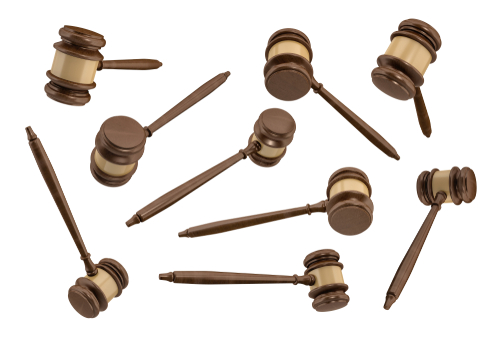Is a paperless, people-less court in our near future?
A small conference room packed mostly with judges from around the country heard one word that defines the future for how they go about their work: mobility.
“Mobility is the key word for information technology,” Glenn Grant, administrative director for the courts of New Jersey told the audience at the program titled “Electronic Tribunals and Digital Trials: Visions of the 21st Century.”
The courthouses will be adopting their own equivalents of online banking and bill paying, from paperless litigation to more and more meetings and hearings via video.
As much as rapid technological change pushes the courts, the driving force is pure economics–tech can be leveraged to do more for less.
“The problem with that is, when you change things it changes what you do,” says panelist Eric Magnuson, a former chief justice of Minnesota. “The impact of technology on courts is dramatic.”
For those old-line lawyers who say they don’t do email, Magnuson has this: “Yeah, right.” Ethical rules now require that lawyers be technologically competent and if a court considers email correspondence official, that could prove problematic.
But the target moves. More and more documents and opinions are in digital form and include hyperlinks to cited cases and other documents. And there is something on the Internet known as “link rot,” in which the source has been moved from the old address or removed entirely.
“Is link rot destroying stare decisis as we know it?” asks Magnuson, wondering what happens if you can’t find the information a court relied on. “It is scary, scary stuff.”
Ming Chin, a justice on the California Supreme Court, presented a slideshow depicting a car crash in the future. Besides being recognized by traffic cameras as the driver of her father’s car, a young woman received a real-time speeding ticket via smartphone an instant before the crash.
The case went through adjudication with “a carbon footprint of near zero,” Chin told the gathering–meaning that most of the human interaction among the judge, prosecution, police officer and driver was virtual, including the eventual guilty plea and levying of a fine.
Panelist Herbert Dixon, of the Washington D.C. Superior Court and a member of the ABA Journal Board of Editors has little doubt that virtual hearings and trials will increase. Expert witnesses are already being allowed to appear virtually and at some point, jurors will too, he says.
The trial itself will be viewed online, he says, and if someone wants to come to the courthouse to watch it, there will be a room to watch it–on video.
“People are not going to be there,” Dixon predicts.



